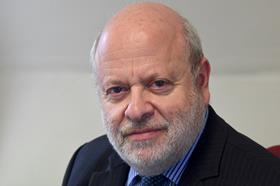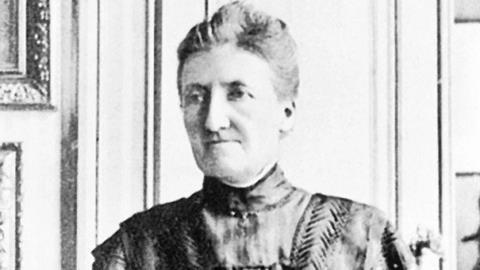Marie Popelin was the first woman in Belgium to become a doctor of laws. This was in 1888, the same year that the first woman in the UK, Eliza Orme, obtained her law degree from University College, London. Marie Popelin was 42 at the time, and Eliza Orme 37.

Marie Popelin applied to the Brussels Bar for admission as a lawyer, but was refused. She appealed up the court system, but was always refused admission, even though there was no specific ban contained in the law on women becoming lawyers.
The courts based themselves on the fact that there had never been a woman lawyer, and because the law did not specify it, it was clearly not foreseen. Even worse, the courts looked at the civil code, and inferred that women suffered from legal incapacity: as a result of their sex, they had to dedicate themselves body and soul to their mission, assigned by nature, including the maintenance and cohesion of the family. They therefore could not assume the task of representing clients.
Both Marie Popelin and Eliza Orme (who was equally unable to apply to be admitted to the English Bar) worked for a time as what we would call paralegals or unregulated providers of legal services, because of their inability to become formally admitted.
The first women to challenge the Law Society for admission as solicitors did so 25 years later, in 1913. There were four of them: Gwyneth Bebb (an Oxford student with first class marks – but no degree because women were not then allowed to graduate), Karin Costelloe (who went on to become a psychoanalyst, and happened also to be Virginia Woolf’s sister-in-law), Maud Ingram, and Frances Nettlefold.
The subsequent case became known as Bebb v The Law Society [1914] 1 Ch. 286. The case turned on whether a woman was a ‘person’ within the Solicitors Act 1843, since again – like in Belgium – there was no express provision against women becoming solicitors.
Like the Belgian courts, the English courts said that a woman was not a ‘person’ within the Act, on the grounds that women had never been allowed to be attorneys and there was no evidence that the legislator meant otherwise. Mirroring the Belgian ‘incapacity’ argument, one judge said that if a woman were to be admitted as a solicitor and subsequently married she would be ‘unfitted’ for entering into articles or for contracting with clients, because she was disqualified by reason of her marriage.
In 2011, requests were made of the Brussels Bar to grant Marie Popelin a posthumous honorary title as lawyer. The Bar refused on the grounds that the formal requirements had not been fulfilled, such as taking the oath. I am not aware whether any similar request for honorary restitution has been made to the Law Society or the SRA on behalf of the women who were refused access so many years ago.
The postscript is that Marie Popelin went on to become a leading Belgian feminist, setting up organisations like the Belgian League for the Rights of Women. She saw a great part of her programme enacted over the years, such as the right in 1900 for women to have savings accounts separate from their husbands.
Unfortunately, she died in 1913 before her two principal goals were realised: universal adult suffrage, and equal access to the liberal professions for women. It was not until 1922 that Belgian women were able to become lawyers, with the consent of their husbands. That was the same year in which the first woman solicitor – Carrie Morrison – was admitted, along with three other women.
I have raised the history of Marie Popelin because I live in Brussels, and we received a notification a few days ago that our street name is to be changed.
My street is currently named after a colonel in the Belgian Army who was both an explorer of the Congo along with Henry Morton Stanley, but also, and even more significantly, a Vice-Governor General of the Congo during King Leopold ll’s infamous personal and absolute rule over the country, which resulted in horrifying mass deaths and mistreatment of the locals.
For a period of time – this is an experiment – a number of streets in our commune are being renamed after notable women, and our street is being renamed after Marie Popelin, which led me to look up her history. There is now a plaque to her under our official street name.
This chimes in well with the current trend for removing, renaming and writing contextual messages in relation to historical events. In this case, it is not a crowd which has done it, but the official authorities of the commune. It is meant to be an educational exercise, and in my case it has worked, because I have learned a lot in consequence.
Jonathan Goldsmith is Law Society Council member for EU matters and a former secretary general of the Council of Bars and Law Societies of Europe. All views expressed are personal and do not necessarily reflect the views of the Law Society Council
































4 Readers' comments